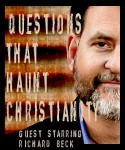I’m away from the blog this week, and I’ve asked my friends to fill in. Here’s a post from Jon Huckins. Jon is part of Nieu Communities, one of the most innovative Christian organizations around, and the co-author of Thin Places: Six Postures for Creating and Practicing Missional Community.
Through my work in co-founding The Global Immersion Project, I have spent significant amount of time over the years cultivating relationships among both Israelis and Palestinians as we partner together in cultivating a narrative of reconciliation. As is often the case when we approach a people or place with the hopes of being/bringing the needed change, I have been the one most changed by my friends and colleagues who reside in the Middle East. Behind so many of the subconscious stereotypes and prejudices I had acquired earlier in my life I began to experience the richness of friendship and brotherhood among people I had previously “known” only through the latest sound bite.
Something I have learned in the classroom of real life relationships with Jews, Christians and Muslims in the Holy Land is that our theology in the West has direct implications for the everyday lives of those in the Middle East. Often ignoring the remarkable movements of peacemaking, reconciliation and collaboration that are sprouting like mustard seeds of hope across the Holy Land, we often choose only to make note of the violence, discord and disintegration of the region.
Why is that and what theology might we be allowing to consciously (or often subconsciously) own our perspective on the events in the Holy Land?
One Christian leader recently shared on Twitter: “Watching events in #Israel . All those hellbent on destroying Israel playing directly into Biblical prophecy. #almostcomical
There are few perspectives that have done more harm for the cause of Christ over centuries of Church history than the one expressed above. We could get into why this has significant theological holes that lead to a fatalistic mentality by discussing the role of Apocalyptic literature found in the second half of Daniel, Mark 13 and much of Revelation, but that is for another time and place.
Here is the question we must ask: As followers of Jesus, how does speculating about the eschaton (Final Things or “End Times”) help us live into our vocation as active participants in the restorative Mission of God? We are to be a people who are marked by our love of God and neighbor. Choosing to view violence apathetically (or worse, with excitement of what it may mean for the future!) is anti-Jesus and anti the mission he invited to extend on his behalf.
If we look at the Middle East primarily through the lens of “prophecy fulfillment” then we are unable to primarily look at its inhabitants as humans loved by Jesus. We reduce Image Bearers into pawns within a divine drama. Within Church history you will see “this is the end times!” being proclaimed dozens of times. These pronouncements are nothing new; at one point Napoleon Bonaparte was thought to be the anti-Christ. In the end, this theology fosters a loss of humanity both for those we condemn and for who we are as humans designed to love and be loved.
What if instead of adhering to this fatalistic eschatology we choose to live into a realized eschatology? In other words, what if we understand the life, death, resurrection and ascension of Jesus as eschatological events? In the Christ-event the end becomes now. In Jesus’ inauguration as King of the Kingdom, he sits enthroned as one who seeks to bring about restoration and reunion between God and the cosmos not through violent overthrow, but through suffering and self-sacrifice. When Jesus announces the in-breaking of the Kingdom in Mark 1, the end collides with today.
No, this doesn’t mean that everything is going to be bright and rosy, but it does mean that our future is one of hope that was already fully realized in Jesus. Our job isn’t to project how our world with decay before finally being restored, but to participate in the restoration God continues to bring about even (if not especially!) in the places we least expect.
Jon Huckins is on staff with NieuCommunities, a collective of missional-monastic communities. He also co-founded The Global Immersion Project which cultivates peacemakers through immersion in global conflict. Jon has a Master’s degree from Fuller Seminary and writes for numerous publications including, theOOZE, Burnside Writer’s Collective, RELEVANT, Sojourners & Red Letter Christians. He has written two books: Thin Places: Six Postures for Creating and Practicing Missional Community (House Studio) and Teaching Through the Art of Storytelling (Zondervan). He lives in San Diego with his wife Jan, daughter Ruby. Jon blogs here: http://jonhuckins.net/. You can also follow Jon on Twitter and Facebook.












